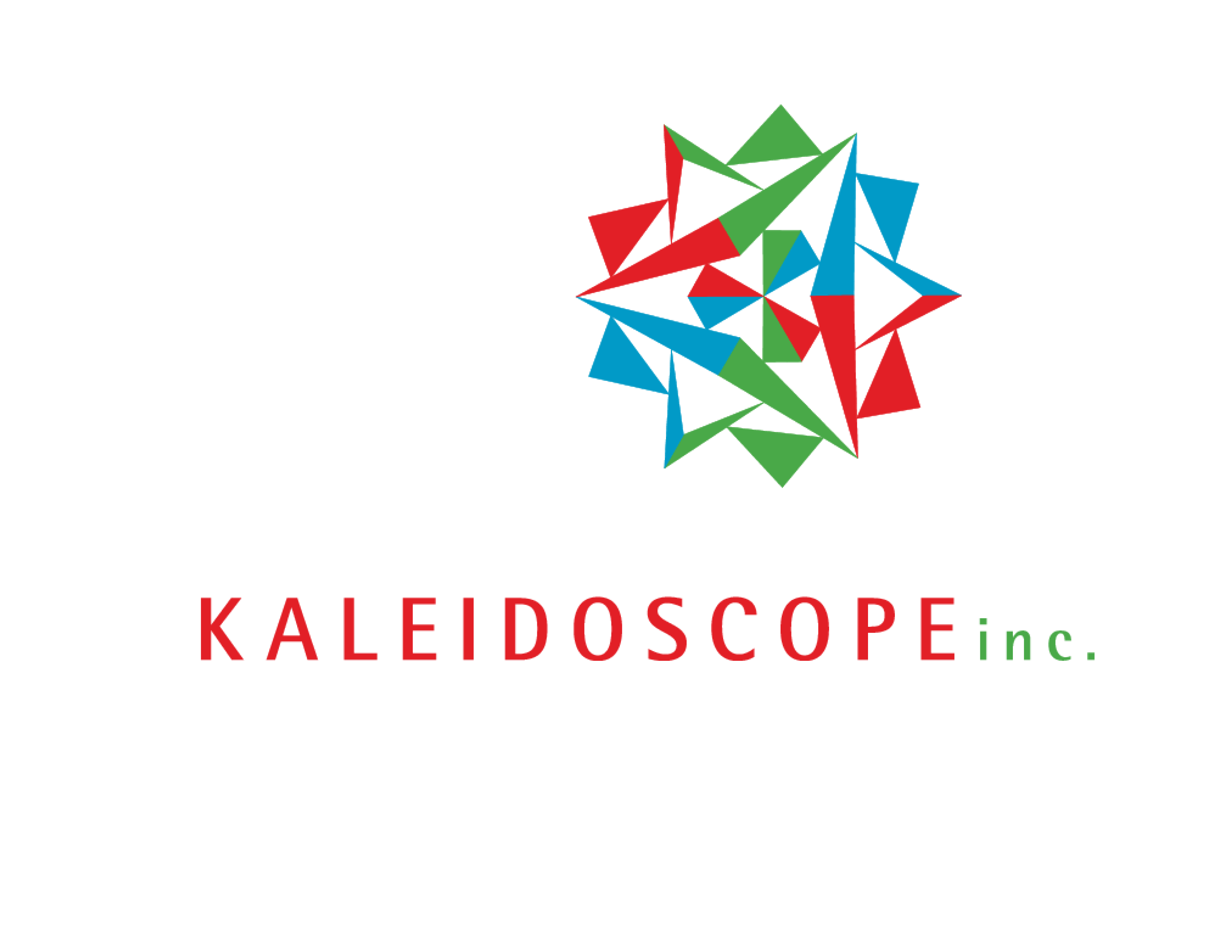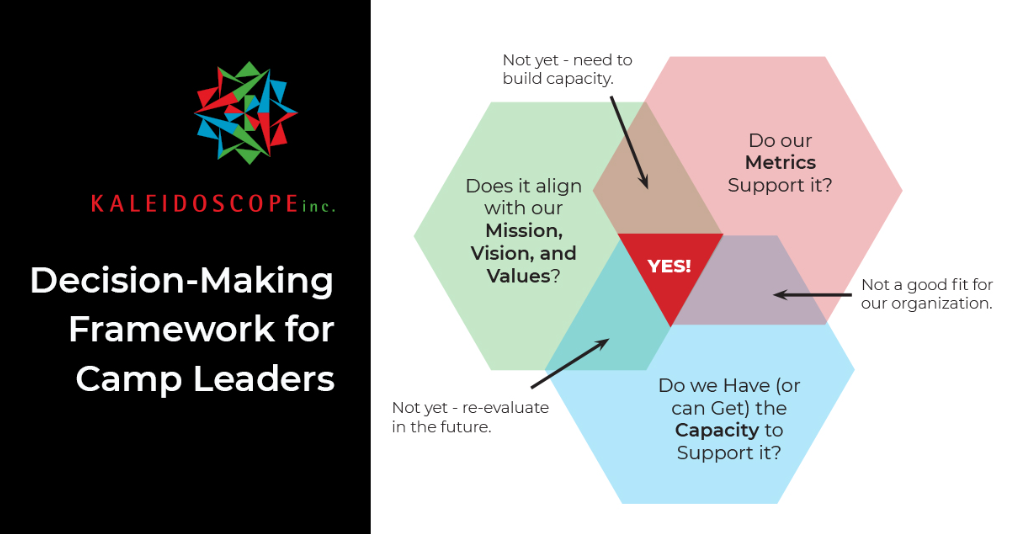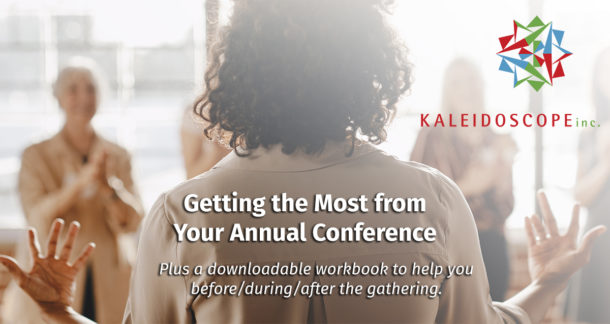A Decision-Making Framework for Camp Leaders: Aligning Mission, Metrics, and Capacity
Camp leaders play a vital role in shaping the experiences of campers, staff, and the overall success of a camp. From deciding on big purchases to implementing new programs, effective decision-making is essential. To guide these decisions, a robust framework is necessary, one that takes into account the camp’s mission, metrics, and capacity. In this article, we will delve into a decision-making framework designed specifically for camp leaders, outlining the three critical aspects to consider: alignment with the camp’s mission, vision, and values, the support of relevant metrics, and the available capacity for implementation.
Alignment with Mission, Vision, and Values
Consistency with Mission: The camp’s mission, vision, and values serve as its guiding principles. Before making any significant decisions, camp leaders must evaluate whether the proposed action aligns with these fundamental ideals. This alignment ensures that the camp remains true to its core purpose and continues to provide an experience in line with its founding principles.
Ethical and Moral Considerations: Beyond the written mission and values, leaders should also consider the ethical and moral implications of their decisions. Does the proposed change or action reflect the camp’s commitment to inclusivity, environmental sustainability, or community building? Ensure that decisions uphold the camp’s moral compass.
Stakeholder Involvement: Decision-makers should engage with key stakeholders, including camp staff, campers, parents, and the local community. Their input is invaluable in assessing whether a decision aligns with the broader goals of the camp and is seen positively by those it impacts.
Do Our Metrics Support It?
Comprehensive Metrics: When considering a decision, leaders must evaluate whether their existing metrics and key performance indicators support it. Metrics should offer a comprehensive view of the situation, capturing the entire picture rather than focusing on isolated data points.
Forward-Looking Metrics: Effective metrics should not merely provide a snapshot of the current situation but also anticipate future needs and challenges. A decision that aligns with forward-looking metrics is more likely to be sustainable in the long term.
Repeatable Metrics: Metrics should be repeatable and consistent over time. This enables camp leaders to make accurate comparisons and track the success or impact of their decisions. Without reliable data, it is challenging to assess the effectiveness of any action.
Do We Have (or Can Get) the Capacity to Support It?
Staffing: Decisions often require the support of a capable workforce. Leaders must assess whether they have the necessary staff or can acquire the talent needed to execute the decision successfully. A lack of staffing can lead to a decision’s failure or strain existing resources.
Funding: Adequate funding is crucial for many camp decisions, especially those involving significant investments. Camp leaders must determine whether they have the financial resources to support the decision, and if not, explore funding options. This could involve grants, sponsorships, or fundraising.
Commitment: Finally, it’s essential to consider whether the organization has the capacity to commit to the decision. Do staff have adequate capacity to give their time and talent to making it successful? Can a choice be supported and messaged in such a way that campers, parents, and the broader community will appreciate and engage with the change?
Camp leaders face a myriad of decisions, and the consequences of these decisions can significantly impact the camp’s future. To ensure that these choices are made wisely, it’s crucial to follow a structured decision-making framework.
The Kaleidoscope Decision-Making Framework ensures that decisions are well-informed and in harmony with the camp’s core identity. Remember that sometimes saying “no” is the most responsible decision when a proposed change does not align with your mission, vision, and values or lacks the necessary metrics and capacity. By adhering to this framework, camp leaders can continue to create memorable and impactful experiences for campers and build a sustainable future for their camp.
Kaleidoscope consultant, Ryan Moore, will be presenting this framework and walking through this content more extensively at the following conferences:
- CCCA
- PCCCA
- ACA
For more information, contact Ryan at ryanmoore@kaleidoscopeinc.com


